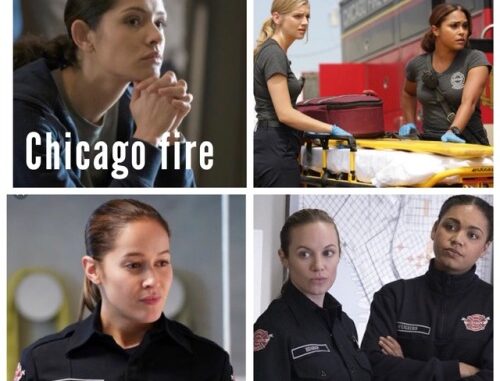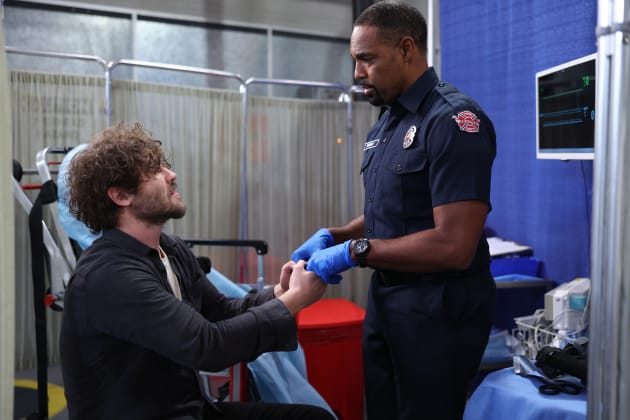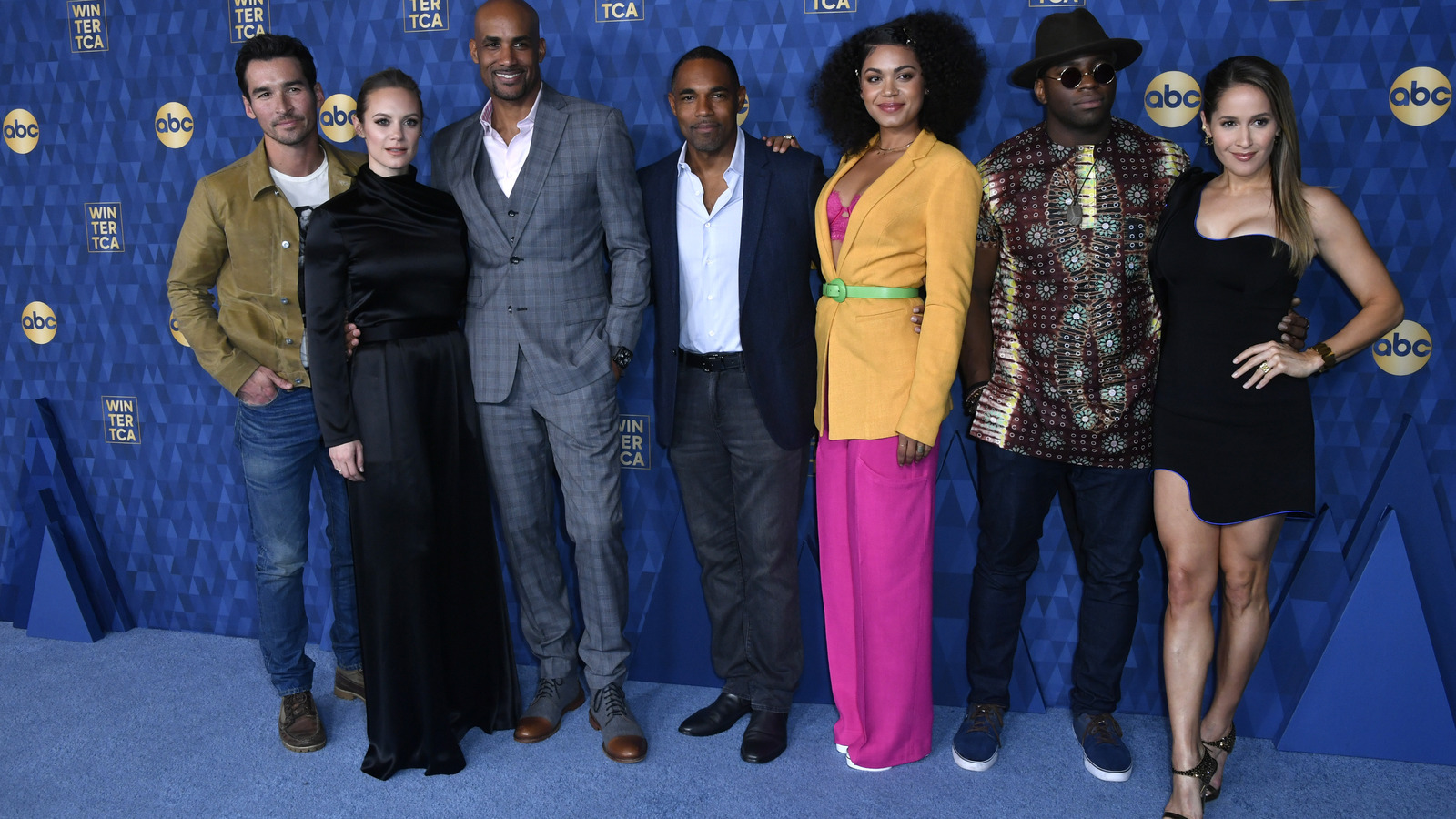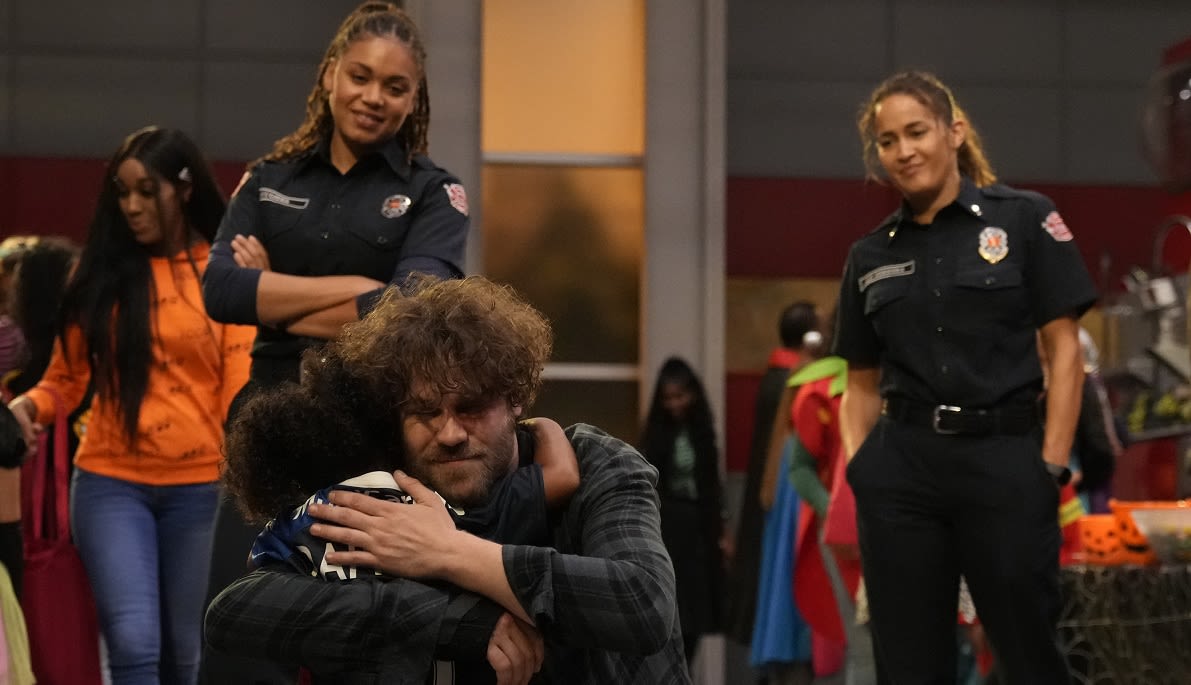
It’s been a rough season for Vic (Barrett Doss) on Station 19. She and Theo (Carlos Miranda) broke up at the end of Season 6. She took over Crisis One, but it’s been under fire from the city. And she’s been shutting down as she faces loss after loss, until she finally exploded in the 100th episode in front of the mayor and local news channels.
In Thursday’s episode, Chief Ross (Merle Dandridge) went to the mayor to fight for Vic’s position and Crisis One, but in the meantime, Vic was sidelined from the job while the team was called to a homeless encampment where a veteran named Maurice lived. Vic and several other Station 19 firefighters had built a relationship with Maurice (George Wyner), but he suffered from intense PTSD from his years in Vietnam. When the fire raged through Maurice’s encampment, Vic’s colleagues were unable to convince Maurice to get out of his tent and he died during the call.
Losing Maurice was Vic’s breaking point. She led her team in a grief processing session, helping them work through their feelings about the call and Maurice’s death. When the session became about Vic’s feelings, she finally exploded and melted down in front of her team, unloading all of the emotional weight she’d been carrying. It was the breakthrough Vic needed the entire season.
Parade talked to Barrett Doss about Vic’s breakdown and where she goes from here in the final episodes. She teases what’s next for Vic and what she’s most excited for fans to see before the series finale.
Vic’s storyline this season was apparently inspired by you telling showrunners Peter Paige and Zoanne Clack that you were burnt out from empathy fatigue from playing the character. When did that start for you?
Probably immediately after Ridley died [in Season 2]. This gets into when we started Season 3, and we were transitioning showrunners to work with Krista [Vernoff]. At the same time I started guest starring on Grey’s, paired with Jesse Williams’ character. I could not figure out why Vic would move on so fast. Ultimately, it has now been several seasons’ worth of exploration of the idea that she is a person who does not display her emotional life in the same way we see her display so much else about herself. She shows off her humor and silliness, but when it comes to her sadness and grief, she really shoves it down.
After several seasons of that, moving through Dean and Pruitt, understanding that she lost her grandmother to dementia before she passed away, there is a theme of loss in Vic’s life. How she manages it is complicated, and I’ve wanted to explore that for a really long time. I feel so lucky that here in the final season we actually get to see a darker side of her and what she’s been shoving down, and the toll that has taken on her.
This episode introduces Maurice and showcases how important Crisis One and Vic were to him. Why do you think his story brought Vic to the edge and finally made her share with the team what she’s been going through?
There’s one character who we’ve talked about but never met, which is her best friend who lived in her grandmother’s assisted living facility. [Meeting] this older man who she feels this kinship with and this friendship with, is almost like she gets a redo. She actually gets to experience the friendship and really experience the loss of that character. We get to see her follow that story from beginning to end. That was a nice way to represent all of the losses that she’s had and the weight of all those losses
When it became clear that Vic was depressed I got excited that we’d have another Diane, the grief counselor, appearance because those are always so great. But Vic actually got to be the Diane in this episode. What was it like for you to hold that space and see Vic take on that kind of responsibility?
We had discussions about who should come to Vic’s rescue. Peter and Zoanne were debating with me and thought that Vic should save herself. She basically Crisis Ones herself. The interesting thing about this storyline is that she’s experiencing empathy fatigue and burnout, and there is no real treatment other than to be connected to other people. I think in her self-isolation, which is so unlike her, she saw that something was wrong. In a way, that was scary because she wanted to feel but she couldn’t. She literally did not have access to what I was calling her superpower, which is her empathy. Allowing Vic to step up and into that role was really crucial to the process of her healing and becomes really crucial to the process of recovering from this experience.

